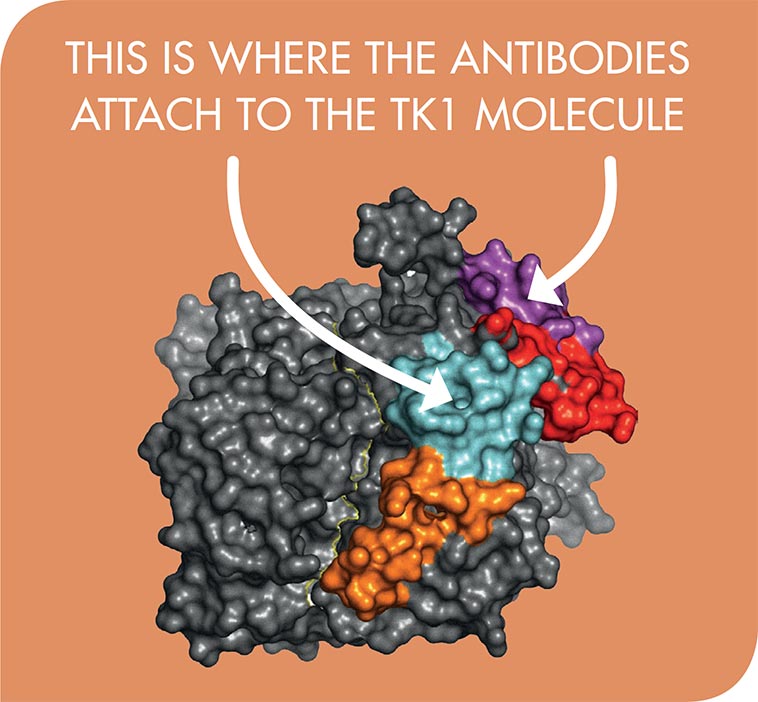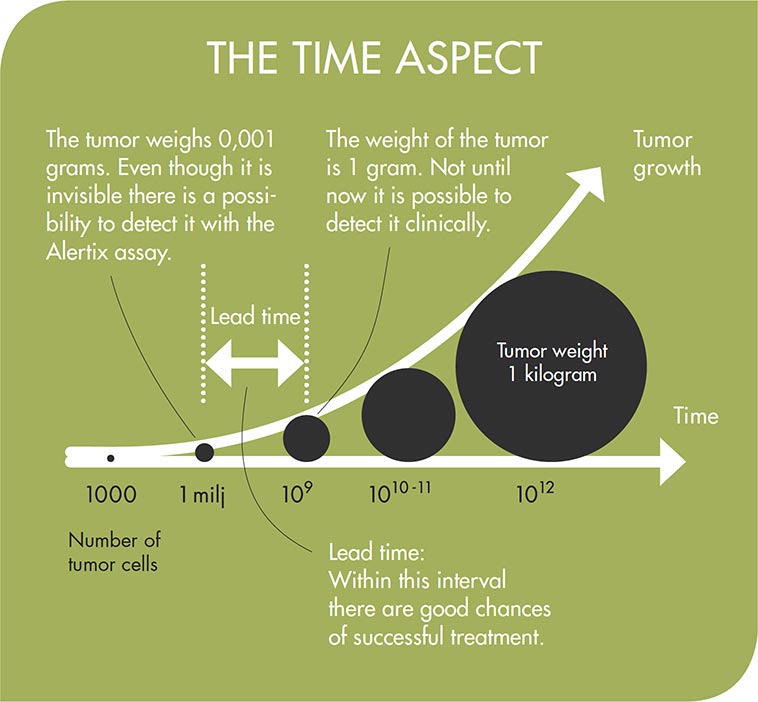Alertix Canine
Alertix Canine is an immunodiagnostic assay for measuring the presence of the enzyme thymidine kinase (TK1) in blood from dogs. TK1 is released into the bloodstream in case of increased cell growth and cell turnover. Therefore, an elevated TK 1-level strongly indicates tumor cell growth – cancer.
Also detects solid tumors
There are other assays for measuring TK1 on the market. Those mainly detect hematologic malignancies – e.g. leukemia and lymphoma. These cancers constitute approx. seven percent of all cancers. However, solid tumors are often missed by traditional TK1 assays. This is because they measure the reaction rate of the enzyme. In the blood of patients with solid tumors, however, a major part of the enzyme is inactive.
Unique on the market
What makes Alertix assay unique is that it measures the TK1 protein by an immunodiagnostic method, which means that we use antibodies that bind to TK1. Subsequently it can be used to detect various forms of tumor cell growth.

Can you be certain that an elevated TK1 level is a result of cancer?
No, it is not quite that easy. It is certain that TK1 is released into the bloodstream in connection with increased cell turnover. But there can also be other explanations – e.g. the presence of a severe inflammation, which can be identified by elevated levels of another biomarker – CRP.
However, it is indisputable that a persistent elevated TK 1 level should always be investigated and may be of great help for diagnosing and treating cancer diseases.
Applications for Alertix Canine
1. Diagnostics

2. Monitoring therapy
3. Screening
Benefits with Alertix Canine
Gives a more complete picture
Alertix Canine detects solid tumors as well as blood cancers by a simple blood test. No other assay can deliver that.
Early detection
The test, in many cases, can detect cancer, even before the patient shows symptoms. Early detection is crucial for successful treatment.
Simple
An ordinary blood sample is all it takes. And the sampling requires only equipment found in all veterinary clinics. Handle it like any blood sample and send it to the lab. You can expect the result within a week by e-mail or by ordinary mail if that is your wish.
Cost effective
A blood test is quite cost effective compared to other test methods. Also, the test is based on the standard platform ELISA.
Gentle
A quick vein puncture, and a minute later the sample is taken. The inconvenience is minimal for the dog.





